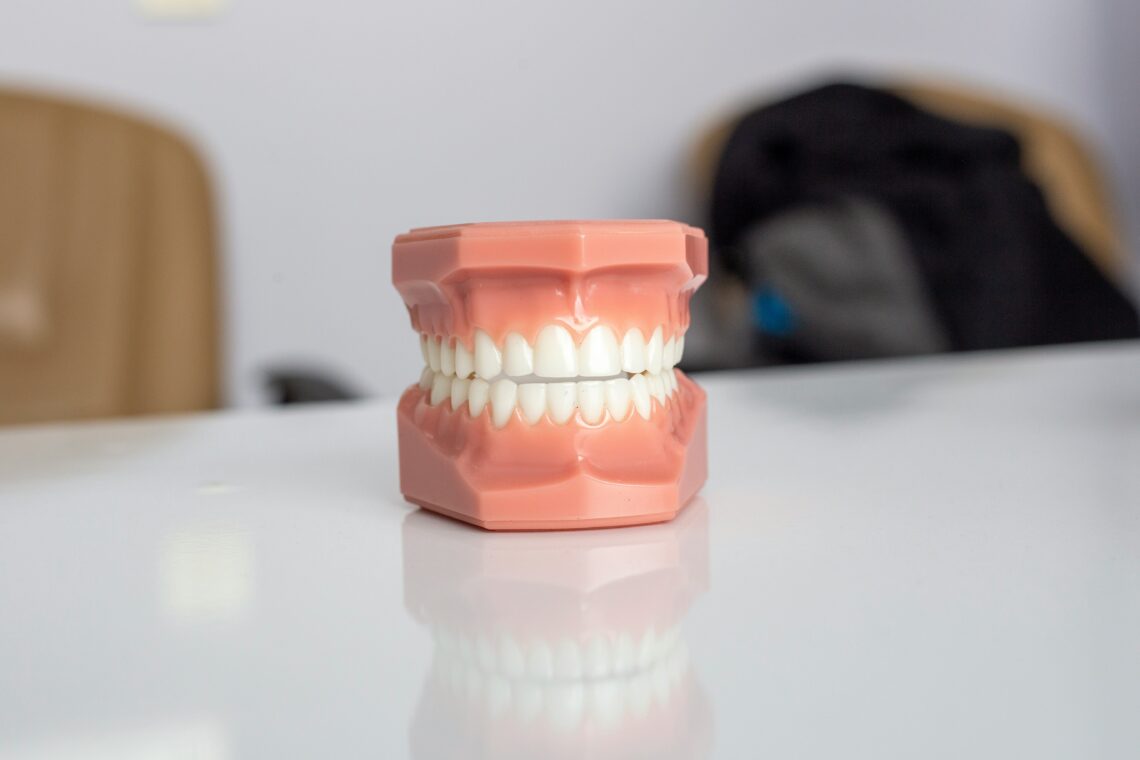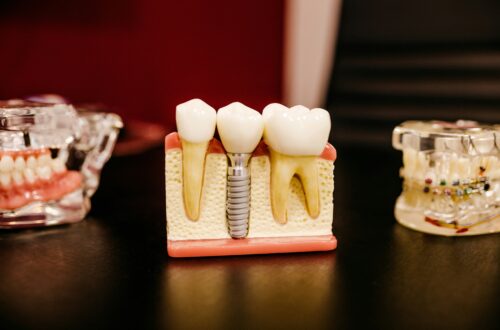Affiliate Disclaimer:
Some of the links on this website are affiliate links, which means that if you click on a link and make a purchase, we may earn a commission at no extra cost to you. This helps support the website and allows us to continue creating content. We only recommend products or services we personally use or genuinely believe will add value to our readers.
Do you keep asking yourself how to heal tooth decay naturally? Tooth decay is a common dental problem that affects millions of people worldwide. For years, we’ve been told that once decay sets in, the only options are fillings, crowns, and root canals.
But would you be surprised if you found out that nature has provided us with tools to actually reverse this process?
It’s true, and it all comes down to understanding and nurturing the delicate balance of our oral microbiome.
Understanding the Oral Microbiome
The oral microbiome is a complex ecosystem of billions of bacteria, both useful and harmful, coexisting in our mouths. For decades, dental care has focused on eradicating all bacteria with harsh mouthwashes and antibacterial toothpastes.
However, this approach has been misguided. The useful bacteria in our mouths play a crucial role in maintaining oral health and preventing tooth decay.
The ProDentim Approach
What Makes ProDentim Different?
Instead of relying on chemicals, ProDentim delivers oral care through a powerful mix of probiotics and natural nutrients. Each serving contains 3.5 billion live strains designed to restore balance in the mouth and support long-term dental health.
Among the most important strains are:
- Lactobacillus Paracasei, which strengthens the gums and helps keep the sinuses healthy.
- B. lactis BL-04®, shown to protect the oral microbiome while reinforcing immune defenses.
- Lactobacillus Reuteri, valued for calming inflammation and promoting a balanced environment in the mouth.
To complement the probiotics, the formula also uses a plant- and mineral-based blend for extra support:
- Inulin, a prebiotic fiber that feeds the “good” bacteria.
- Malic Acid, a fruit compound linked to brighter, whiter teeth.
- Tricalcium Phosphate, a mineral that contributes to strong, resilient enamel.
- Peppermint, providing natural soothing and anti-inflammatory benefits.
The Science of How to Heal Tooth Decay Naturally
To understand how to heal tooth decay naturally, we need to look at the process of remineralization. Our teeth are constantly undergoing a cycle of demineralization and remineralization.
When we consume acidic foods or when harmful bacteria produce acid, our tooth enamel loses minerals. This is demineralization.
However, our saliva, which contains calcium and phosphate ions, works to replace these lost minerals.
This is remineralization.
The key to healing tooth decay naturally is to tip this balance in favor of remineralization. Here’s how we can do that:
1. Nutrient-Dense Diet
Your teeth need specific vitamins and minerals to stay strong and healthy. Focus on incorporating foods rich in calcium, phosphorus, and vitamins D and K2 into your diet.
Some excellent options include:
- Leafy greens like kale and spinach
- Nuts and seeds, particularly almonds and sesame seeds
- Grass-fed dairy products
- Wild-caught fatty fish
2. Maintain Proper pH Balance
An alkaline environment in your mouth promotes remineralization. To maintain this:
- Rinse your mouth with water after consuming acidic foods or drinks
- Snack on alkaline foods like celery and cucumbers
- Consider using an alkaline mouthwash
3. Xylitol
Xylitol is a natural sweetener that does more than just taste good. It actively helps prevent tooth decay by inhibiting the growth of harmful bacteria.
You can find xylitol in sugar-free gum, mints, or as a sugar substitute for baking and cooking.
4. Oil Pulling
Oil pulling is a traditional Ayurvedic ritual believed to enhance oral hygiene and overall wellness. The process involves gently swishing oil—most commonly coconut oil—around your mouth for an extended period, allowing it to draw out impurities and reduce harmful bacteria.
How to practice oil pulling:
- Measure about one tablespoon of coconut oil.
- Swish the oil slowly and thoroughly around your mouth for 15–20 minutes, avoiding swallowing.
- Spit the oil into a trash bin or paper towel (never down the sink to prevent clogs).
- Rinse your mouth with warm water to remove any residue.
- Finish by brushing your teeth as you normally would.
5. Herbal Remedies
Certain herbs have natural antibacterial properties that can support oral health. Some useful herbs include:
- Neem: Known for its powerful antibacterial properties
- Green tea: Rich in antioxidants that support oral health
- Sage: Has astringent properties that can help reduce inflammation
Implementing a Natural Tooth Decay Reversal Routine
To effectively heal tooth decay naturally, it’s essential to adopt a holistic approach to oral care. This means combining the use of ProDentim with the natural remedies we’ve discussed, as well as maintaining good oral hygiene practices.
Here’s a step-by-step guide to implementing a natural tooth decay healing routine:
- Morning Oil Pulling: Start your day with 15-20 minutes of oil pulling using coconut oil.
- Brush with Natural Toothpaste: Use a natural, fluoride-free toothpaste.
Look for ones containing ingredients like neem, green tea extract, or xylitol.
- Take ProDentim: Follow the recommended dosage instructions for your ProDentim supplement.
- Nutrient-Dense Breakfast: Eat a breakfast rich in vitamins and minerals that support tooth health.
Consider options like a spinach omelet with grass-fed cheese or a smoothie with leafy greens and chia seeds.
- Rinse After Meals: Get into the habit of rinsing your mouth with water after meals and snacks.
This helps neutralize acids and remove food particles.
- Xylitol Throughout the Day: Chew xylitol gum or suck on xylitol mints between meals to promote saliva production and inhibit harmful bacteria.
- Evening Oral Care: End your day with another round of brushing and flossing.
Consider using a remineralizing mouthwash.
Consistency is key when it comes to natural healing. Be patient and stick with your routine, as it may take time to see noticeable results.
Potential Challenges and How to Overcome Them
As you start on this natural tooth healing journey, you might come across some challenges. Here’s what to expect and how to handle it:
1. Initial Die-Off
As the useful bacteria from ProDentim start to overtake harmful bacteria, you might experience temporary bad breath or a change in taste. This is normal and typically passes within a few days.
To manage this:
- Stay hydrated
- Use a tongue scraper
- Increase your intake of probiotic foods
2. Dietary Adjustments
Shifting to a more alkaline, nutrient-dense diet can be challenging at first. To make the transition easier:
- Start by making small changes
- Gradually introduce new foods
- Experiment with different recipes to find alkaline foods you enjoy
3. Patience
Unlike conventional treatments, natural remedies take time to show results. To stay motivated:
- Keep a journal of your progress
- Take photos of your teeth regularly to track changes
- Celebrate small victories along the way
Adapting Natural Tooth Care to Different Scenarios
As you become more comfortable with these natural techniques, you can start to adapt them to different scenarios:
Traveling
- Pack xylitol mints or gum
- Bring a travel-sized ProDentim
- Carry a small bottle of coconut oil for oil pulling
Dining Out
- Choose alkaline foods from the menu when possible
- Rinse with water after your meal
- Chew xylitol gum after eating
The Broader Benefits of Natural Oral Care
The benefits of this natural approach extend beyond just reversing tooth decay. By nurturing your oral microbiome, you’re supporting your overall health.
The mouth is often called the gateway to the body, and a healthy oral environment can have positive effects on:
- Digestion
- Immune system function
- Heart health
- Respiratory health
Experimenting with Natural Remedies
To really master this approach, try experimenting with different natural remedies and finding what works best for you. Here are some ideas:
- Try different oils for oil pulling (sesame oil is another traditional option)
- Experiment with herbal mouthwashes using ingredients like sage or chamomile
- Incorporate probiotic foods like kefir or kombucha into your diet to complement your ProDentim routine
Exercises to Reinforce Your Natural Oral Care Routine
- pH Testing: Use pH strips to test your saliva throughout the day.
This will help you understand how different foods and activities affect your oral pH.
Aim for a slightly alkaline pH of 7.2-7.6.
- Remineralization Tracking: Take close-up photos of any visible decay spots weekly.
Over time, you should see improvements in the appearance of these areas.
This visual progress can be incredibly motivating.
- Probiotic Food Challenge: Try incorporating a new probiotic-rich food into your diet each week.
Options include:
- Kefir
- Kombucha
- Sauerkraut
- Kimchi
- Miso
- Natural Toothpaste DIY: Experiment with making your own remineralizing toothpaste.
A basic recipe might include:
- 4 tablespoons bentonite clay
- 3 tablespoons calcium carbonate powder
- 1 tablespoon xylitol
- 1/4 teaspoon sea salt
- 10-15 drops essential oil (peppermint or tea tree work well)
- Water to desired consistency
Mix the dry ingredients first, then slowly add water until you reach a paste-like consistency. Store in a glass jar and use as you would regular toothpaste.
Key Takeaways
- The oral microbiome plays a crucial role in tooth health.
- Natural remineralization is possible through diet and targeted supplements like ProDentim.
- A holistic approach combining probiotics, diet, and natural remedies is most effective for healing tooth decay.
- Consistency and patience are crucial for seeing results with natural oral care methods.
- Supporting oral health naturally can have positive effects on overall wellbeing.
People Also Asked
What causes tooth decay?
Tooth decay is primarily caused by the interaction between bacteria in your mouth and sugars from the food you eat. These bacteria produce acid that erodes tooth enamel over time.
Can tooth decay be reversed naturally?
Yes, in its early stages, tooth decay can be reversed through natural methods that promote remineralization. These include dietary changes, proper oral hygiene, and the use of products like ProDentim.
How long does it take to reverse tooth decay naturally?
The time it takes to reverse tooth decay naturally can vary depending on the extent of the decay and person factors. Minor decay might show improvement in a few months, while more significant decay could take 6-12 months or more.
Are probiotics good for teeth?
Yes, probiotics can be useful for dental health. They help balance the oral microbiome, reducing harmful bacteria that cause decay and gum disease.
What foods help remineralize teeth?
Foods high in calcium and phosphorus can help remineralize teeth. These include dairy products, leafy greens, nuts, and seeds. Foods rich in vitamin D, like fatty fish, also support remineralization.
Is oil pulling effective for dental health?
Many people find oil pulling effective for improving oral health. It may help reduce harmful bacteria, freshen breath, and support overall oral hygiene when used as part of a comprehensive dental care routine.
Can xylitol prevent cavities?
Xylitol has been shown to help prevent cavities by inhibiting the growth of bacteria that cause tooth decay. Regular use of xylitol products can be a useful part of a cavity prevention strategy.
How does ProDentim work?
ProDentim works by introducing useful bacteria to the oral microbiome. These probiotics help create an environment in the mouth that supports tooth health and can help with the natural process of remineralization.
Are there any side effects to using natural tooth decay remedies?
Most natural tooth decay remedies are safe, but some people might experience temporary side effects like changes in taste or mild digestive issues when starting new supplements. It’s always best to talk to a healthcare professional before starting any new health regimen.
Can natural remedies replace regular dental check-ups?
While natural remedies can be very effective for maintaining oral health, they should not replace regular dental check-ups. Professional cleanings and examinations are still important for comprehensive dental care.



